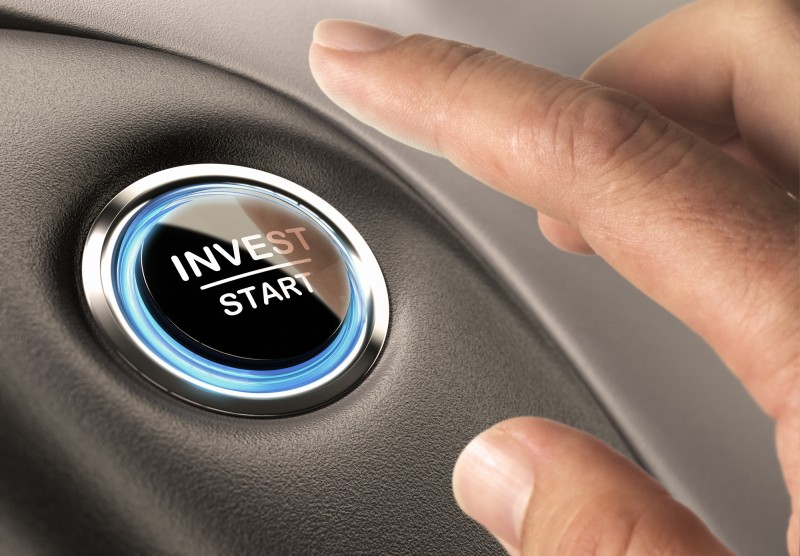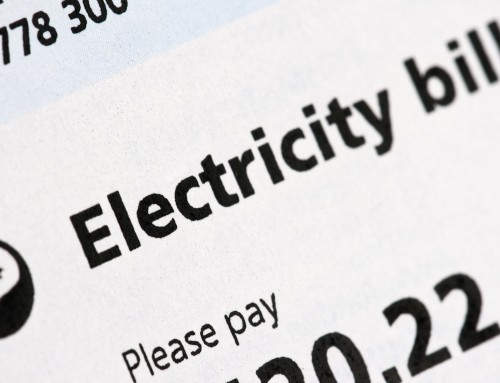If you’ve been saving for a while, you’ve likely noticed your savings account simply doesn’t yield much of a return.
Sure, you make a few dollars in interest and occasionally receive a bonus, but even a high-yield savings account won’t catapult you into retirement.
Investing is one of the best ways to grow your savings without taking more money out of your paycheck. It comes with risks, and you’ll watch your accounts move up and down, but long-term investments allow you to go further than saving money – they allow you to build wealth.
For many, the most challenging part of investing is figuring out where to start. If you’re interested in the idea of transforming your savings into wealth, keep reading to learn how to start investing.
Am I Ready to Start Investing?
We can’t lie to you: it’s never been easier to learn how to start investing.
The advent of new technologies and the desire of the finance and banking industry to appeal to the average consumer mean that traipsing around the stock market is no longer exclusively the pastimes of the Rothschild.
You can start investing today with a $5 deposit – but are you ready?
Investing comes with risk. Every dollar you put in the stock market today could be gone tomorrow.
More importantly, many Americans don’t yet have the financial health they need to start saving meaningfully. The average American can’t afford a $500 emergency. If you don’t have $500 socked away in a savings account, then you might not be ready to start investing.
To learn whether you’re ready to learn how to start investing, ask yourself these questions:
- Do I pay my bills on time every month?
- What is my debt-to-income ratio?
- How often do I withdraw cash from savings to cover a necessary monthly expense?
- Is it a struggle to keep my checking account in the black before payday?
- Have I tried to save for a big investment, like a house or condo, but had to quit repeatedly?
If you find yourself spending all your cash getting out of debt, then it’s important to start paying off debt and setting aside emergency funds before putting money in the stock market.
Not only will you be able to more comfortably spare (and potentially lose) the money, but you’ll be in a much healthier financial position. At the end of the day, financial health is the key to wealth.
Three Things You Need to Get Started
Learning how to start investing doesn’t require expensive courses, huge down payments, or making the right connections. Anyone can collect these three things with the help of an internet connection:
Brokerage Account
If you’re new to investing, you need a brokerage account or stockbroker. While it’s not a legal requirement, the casual investor doesn’t have the time, energy, or experience to buy and sell. Plus, you can’t simply buy stocks online: only special circumstances allow unlicensed investors to buy stocks directly.
Simply put: if you don’t have time to study up on buying stocks, then you need a broker or brokerage account.
Choosing the right broker or brokerage account can make or break your investing experience, particularly if you’re starting small. Brokers and brokerages make money through a combination of commissions and fees.
You don’t want those fees to eliminate any profit you may earn through investing. By handing over all your profits, you’re doing no better than you would in a savings account AND you’re taking on the extra risk associated with the stock market.
Strategy
Anything involving cash requires a strategy. After all, you don’t spend all month without thinking about it, right? You put together a budget based on your available resources, mandatory spending, and optional purchases to make the most of your money.
The same is true in investing: you don’t just buy whatever stocks or bonds look good that day. Your buying and selling must fit into a wider plan.
Here are a few questions to ask to begin forming your strategy:
- Are you looking for long-term wealth creation or a short-term gain?
- How much of your initial investment can you afford to lose?
- When do you plan to withdraw the money from your brokerage account?
- What kind of savings or assets do you already own (401k, IRA, property, etc.)?
Answer these questions, and you’ll be able to determine how much money you need to invest to achieve your goals and how much risk you’ll be able to comfortably handle.
Here’s an example:
You’re saving $25,000 for your dream wedding, which has a fixed date two years from now. You’ve already put the deposits on your essentials, but the full bill isn’t due until closer to the date, so you want to grow your money in the meantime.
In this scenario, you’re looking for a strategy that helps you grow over the short-term, but you can’t afford to lose the money. You’d assume a medium risk strategy to help you grow your savings without risking it all and finding yourself flat broke with bills to pay.
From here, you can create a strategy that will help you maximize your returns in a good market.
Capital
Yes, you do need money. But for the first time in the history of the stock market, there are account options that require no minimum initial investment.
You can begin investing with a traditional broker for as little as $1,000 in some cases. However, many big names still ask for a minimum contribution of $5,000 to $10,000.
If you’re considering the robo-investing route, then you only need $1 to get started. Apps like Acorns and Robinhood allow any U.S. citizen to sign up with only a few dollars, but you’ll find flexibility and returns limited on these accounts compared to traditional brokerages.
Remember, the stock market makes millionaires, but it also breaks them. Your $500 investment won’t turn you into Warren Buffet, so you need to outline your financial goals in your strategy before you decide on the amount of cash to sink into your new account.
Struggling to save for that initial investment? Put a strategy in place and consider using a savings app or look for more tips to save money available from financial experts and real people on the internet.
Learn How to Start Investing Today
Investing isn’t easy, but the barriers to entry are much lower than they used to be. Today, anyone with an internet connection and an online bank account can get involved.
Have new trends in finance encouraged to you to start thinking about playing the stock market? Share your stories in the comments below.











